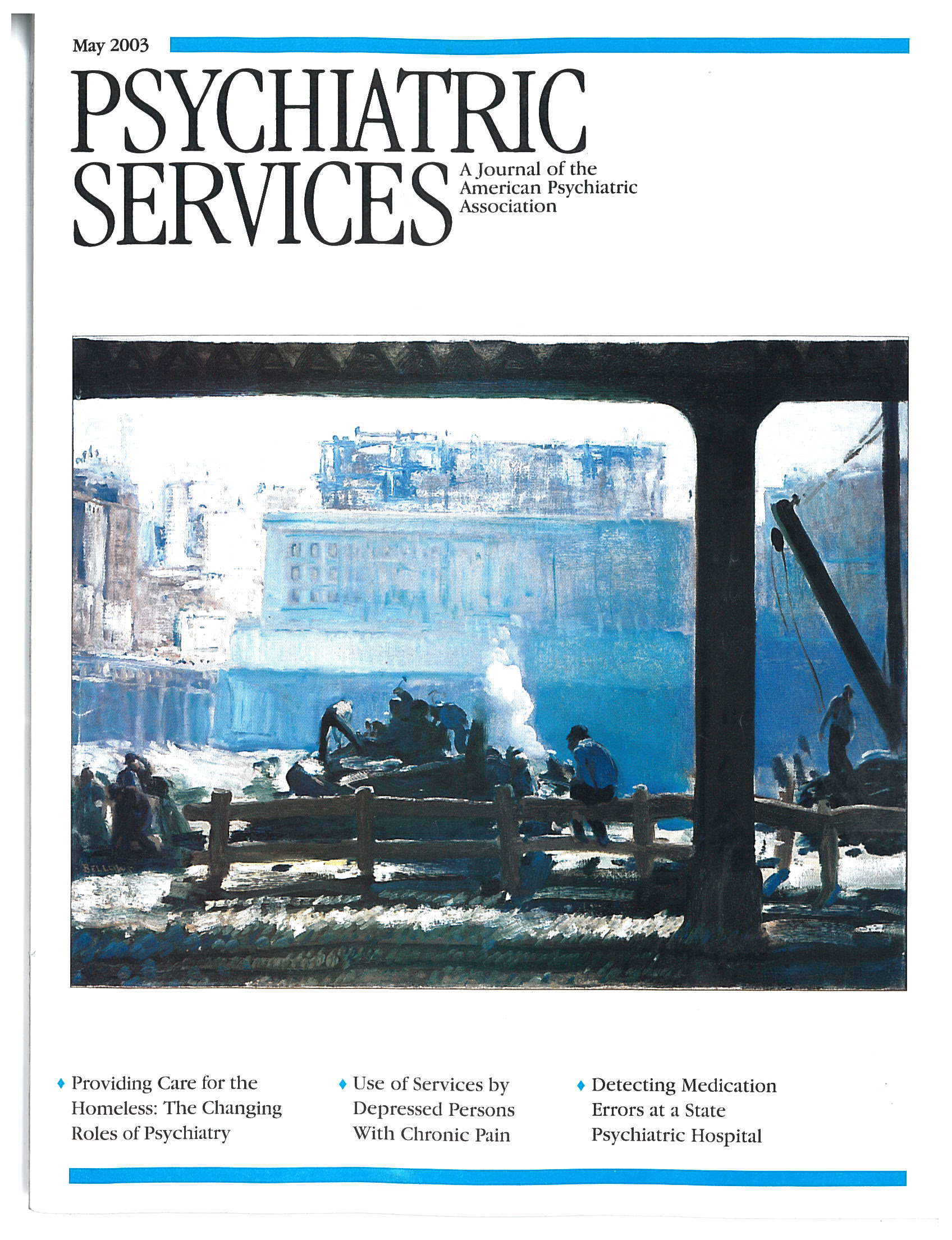This Month's Highlights
Medication Errors in Psychiatric Hospitals
Medical errors have recently become the focus of increased attention. In a study reported in this issue of Psychiatric Services, Benjamin C. Grasso, M.D., and his colleagues compared the effectiveness of two methods of detecting medication errors in a state psychiatric hospital—use of a review team versus the usual self-reporting method. The review team retrospectively reviewed 31 patient records (covering a total of 1,148 patient-days) for prescription, transcription, and administration errors and concurrently determined dispensing errors for an equivalent number of patient-days. The team detected 2,194 errors, compared with only nine errors captured in the self-reports of the nursing and medical staff at the hospital. Of particular concern, 58 percent of the errors detected by the review team were rated as posing a high risk to patients, whereas only 19 percent were rated as low-risk errors (see page 677).
Psychiatry's Roles in Caring for the Homeless
Homeless persons with psychiatric disorders present many challenges to the psychiatry profession. Hunter L. McQuistion, M.D., and his coauthors discuss the roles psychiatrists have developed in working with this population—roles that incorporate clinical, administrative, academic, and advocacy functions. The authors describe recent trends in homelessness, such as its increasing prevalence, especially among children and families and in certain subpopulations, such as persons with substance use disorders and victims of sexual or physical abuse. They discuss how these trends will influence the mental health care needs of the homeless population and the new challenges that are likely to emerge. They note that psychiatry must continue to evolve in order to effectively meet these challenges and to keep fulfilling the roles it has established in working with the homeless population (see page 669).
The Effect of "Administrative Burden"
Substance abuse treatment organizations are being expected to perform a growing number of administrative tasks, such as documenting care processes, conducting preauthorizations, and preparing ongoing and follow-up utilization reviews. Meanwhile, these organizations face increasing pressure to maximize efficiency. Christy Harris Lemak, Ph.D., and her associates studied the extent of this "administrative burden" on outpatient substance abuse treatment organizations and its implications for efficiency and productivity. Using data from the 1995 and 2000 waves of the National Drug Abuse Treatment System Survey, they showed that administrative burden has increased in recent years and that both efficiency, as measured by operating expenses per therapy hour and salary and wages per therapy hour, and productivity, as measured by treatment sessions per full-time equivalent, are negatively affected by administrative burden. In addition, these researchers found evidence that substance abuse treatment organizations may be shifting resources away from patient care in response to increasing administrative burden (see page 705).
Improving Depression Treatment in Primary Care
The potential to successfully treat depression in primary care settings has never been greater. However, the poor quality of depression treatment in this setting has been well documented. In this month's issue of the journal, Richard G. Frank, Ph.D., and his coauthors argue that there is often a misalignment between current treatment technologies and the market institutions that govern their use. Common organizational and financing arrangements, such as managed behavioral health carve-outs and risk-based provider payment methods, favor the use of some treatments over others, independent of relative effectiveness and efficiency. The authors describe various clinical models for improving depression treatment in primary care and provide examples of economic and organizational changes that could enhance the long-term sustainability of these models. They note that although such changes must be tailored to particular systems of care, several key principles should guide their design and implementation—for example, adaptation of reimbursement systems and administrative processes to allow for payment of components of evidence-based practices (see page 682).
Briefly Noted…
The Alcohol & Drug Abuse column looks at Moderation Management, a controversial mutual-help organization that offers its members the goal of moderate drinking (see page 621).
The Psychopharmacology column presents preliminary data on adherence to atypical antipsychotic medications and suggests ways in which adherence could be improved (see page 665).
The book review section opens with discussions of two books on the evolution of drug courts in the United States (see page 750).



